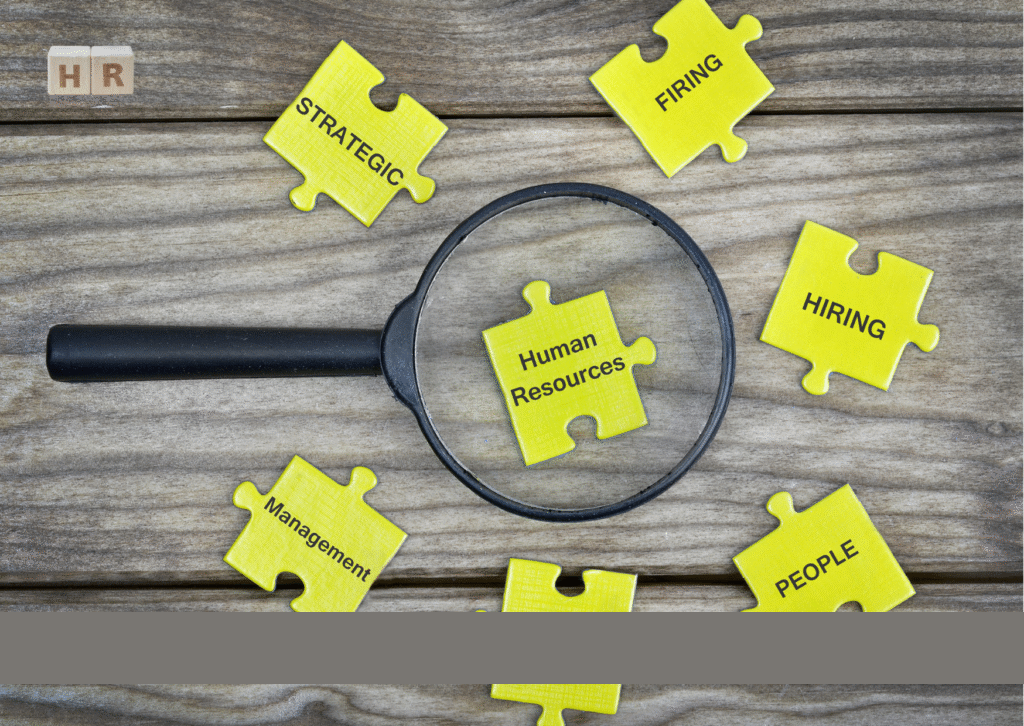
The Critical Need for Human Resources to Understand Job Duties Across Departments
Human Resources (HR) professionals play a critical role in shaping and sustaining the culture, talent, and operational effectiveness of any organization. As businesses grow increasingly complex and diverse, the role of HR has evolved beyond administrative functions to encompass strategic partnership with every department.
This article examines the fundamental roles and responsibilities of HR professionals and why HR’s comprehensive understanding of job functions is crucial for recruitment, training, conflict resolution, and employee satisfaction. This article demonstrates how HR’s insight into departmental responsibilities contributes to overall organizational effectiveness.
Key Roles and Responsibilities of the Human Resources Department

HR professionals play a vital role in shaping and enhancing organizational talent management. Their key responsibilities encompass:
- Recruitment and Selection: Attracting, screening, and hiring candidates whose skills and values align with organizational needs.
- Employee Relations: Fostering a healthy work environment, addressing grievances, and ensuring compliance with labor laws.
- Compensation and Benefits: Designing and administering competitive compensation structures to attract and retain top talent.
- Training and Development: Facilitating programs for upskilling and continuous professional development.
- Performance Management: Overseeing evaluation systems that align individual performance with strategic goals.
- Compliance and Policy Enforcement: Ensuring the organization adheres to legal, ethical, and regulatory standards.
- Organizational Development: Leading change management initiatives and fostering a culture of innovation.
The core functions of HR serve as the essential framework that empowers their participation in every facet of organizational life. These functions are not just guidelines; they are the building blocks that enable HR to actively shape and enhance the workplace experience for everyone involved. The dual roles of Human Resources often lead to a conflict of interest between HR and organizational employees. A prevalent sentiment among employees is that HR prioritizes the organization’s objectives over their own needs. Employee concerns are typically addressed only when they align with organizational goals. Moreover, during conflicts, the essential responsibilities of HR can become overshadowed by political and social agendas, which diminishes the overall effectiveness of the department in serving both the organization and its employees. If Human Resources takes the initiative to thoroughly understand department job roles, it will significantly mitigate conflicts, enhance recruitment efforts, improve employee evaluations and recognition programs, and strengthen employee policies.
The Importance of HR’s Understanding of Specific Job Functions in Recruitment
HR’s grasp of departmental job functions is crucial for effective recruitment. Without this insight, job descriptions can be vague, candidate profiles may be mismatched, and new hires may lack the precise skills needed for success.
Accurate Job Descriptions: HR’s understanding enables the posting of detailed and realistic job postings, ensuring the right talent pool is targeted.
Targeted Talent Acquisition: HR can better assess candidates’ technical and cultural fit, reducing turnover and onboarding time. Often, the screening process leaves out candidates who are a good fit for a position. The criteria for the selection process may be based on HR’s idea of what’s needed versus the supervisor or manager who actually works with the employees
Enhanced Collaboration: Alignment with hiring managers ensures a unified recruitment strategy, improving selection outcomes. In some cases, Human Resources will allow only one person to act as the hiring manager, which prevents other people from having a role in the hiring process. When one person has been dedicated to hiring new employees to a department, this signifies a one-dimensional hiring process based on biased hiring practices.
Facilitating Conflict Resolution
For some individuals, their interactions with Human Resources often reveal shortcomings in the department’s approach to conflict resolution and a deep understanding of job responsibilities. To illustrate this, consider the following scenario:
Officer Williams has spent much of his career in an environment characterized by minimal accountability and vague expectations regarding his job duties. This status quo is abruptly challenged when a new supervisor arrives and begins implementing a series of standards intended to enhance performance on his shift. Officer Williams finds himself increasingly frustrated as the supervisor introduces new policies, such as requiring officers to remain visible during their shifts and limiting personal phone calls while on duty. Additionally, officers are expected to adhere strictly to their posts until the conclusion of their shifts. Officer Williams perceives these changes as unnecessary restrictions and views the supervisor’s actions as an overreach into their professional autonomy, interpreting them as attempts to exert control.
Feeling that his concerns are not being heard, Officer Williams escalates the matter by reporting the supervisor’s actions to Human Resources. HR intervenes by facilitating a conversation between both parties, yet they also advise the supervisor to temper his approach, encouraging him to be more accessible and relatable in his leadership style. Meanwhile, Officer Williams receives a message urging him to exercise patience during this transition, with HR assuring him that they will keep an eye on the supervisor’s conduct to prevent the development of a hostile work environment.
Despite HR’s intervention and discussions with both parties, a disconnect remains regarding the situation. HR needs to understand the rationale behind the supervisor’s changes and their implications for officers, such as Williams, in terms of job performance. Gaining insight into this dynamic could facilitate more effective resolutions and training that cater to the officers’ needs while fostering a positive workplace environment. Human Resources (HR) plays a crucial role in advocating for the establishment of clear work expectations and fostering professional development. This becomes especially important in instances where individuals make unfounded accusations against their colleagues, often stemming from a workplace culture where leadership has been inadequate in setting and communicating employee expectations. By promoting clarity and supporting ongoing professional growth, HR can help create a more positive and productive work environment.
Best Practices for HR to Gain Departmental Insights

To effectively support all parts of an organization, HR must proactively seek to understand every department’s unique needs and challenges. Best practices include:
- Job Shadowing: HR professionals periodically spend time working in various departments to gain firsthand knowledge.
- Regular Stakeholder Meetings: Scheduled sessions with department heads to discuss evolving roles and skills requirements.
- Skills Mapping: Creating matrices of required competencies for key roles.
- Employee Surveys: Gathering feedback on pain points and developmental needs directly from staff.
- Continuous Learning: Attending in-service and other department-held trainings to understand department functions and learning objectives.
These strategies guarantee that HR stays informed and responsive. The evidence is compelling: HR’s in-depth understanding of job functions and departmental roles is fundamental to successful talent acquisition, employee development, conflict resolution, and overall employee satisfaction. Organizations that prioritize HR’s awareness and integration across various functions are better positioned for enhanced agility, higher retention rates, and improved overall effectiveness. In an era characterized by swift change, HR’s dual role as caretaker of personnel and collaborator with every department has become increasingly vital.
We’d love to hear about your journey with Human Resources! What experiences have you had? Share your thoughts and insights with us!
